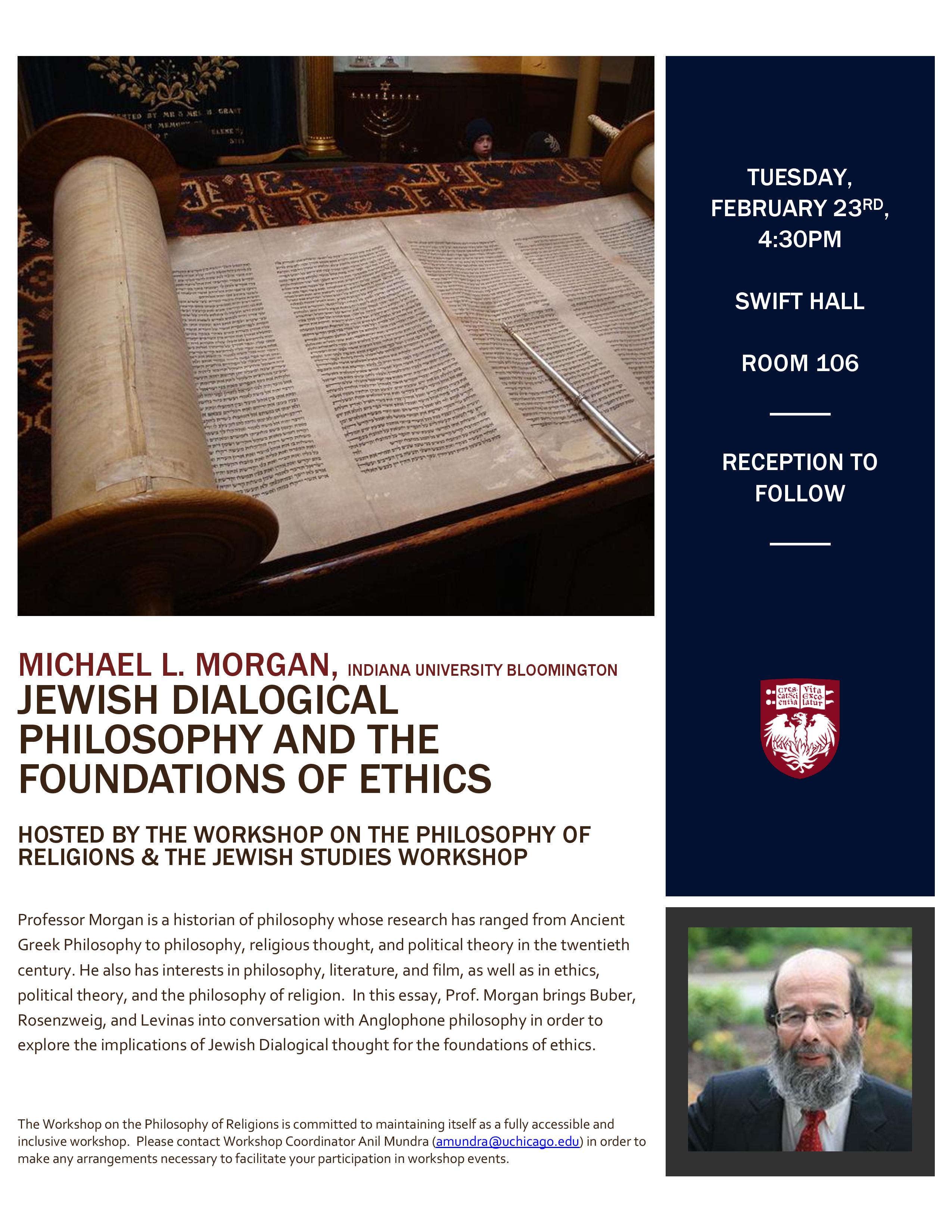
Tag Archives: Judaism
Toshihiro Horikawa on Buber, Buddhism, and Taoism

Matthew Peterson on Jewish Ethics
Matthew Peterson (MA Student, Divinity)
“Between Halakhah and the Other: Navigating the Scope of Jewish Ethics”
Tuesday, April 14th, Noon
Swift 201
Abstract:
One recurring theme in modern Jewish thought has been the scope of its ethics. That is, upon whom can Jewish ethics make demands, whom can it address, and who may embody Jewish ethics appropriately? To address these questions, this paper puts into dialogue two figures who stand at opposite poles on the spectrum of concern. Emmanuel Levinas, a Jewish philosopher, offers an anthropocentric vision of Judaism that is about responding to the demands of the human Other and is therefore, I argue, universal. In contrast Rabbi Aharon Lichtenstein, a philosophically-informed authority on Jewish law, offers a fundamentally theocentric view of Judaism, where to be Jewish is to respond to the call of the God of Abraham by following the laws of halakhah, and in this sense I argue its ethics are particular.
Two different positions come out of this conversation: a broad appeal to moral authority grounded in a religiously informed anthropology, and a traditionalist, identity-defined response rooted in religious law. While both positions support moral authority over autonomy, their divergence suggest the need for a more careful distinction between ethics as teleological and concerned with aims, and morals as deontological and concerned with norms. This clarification illustrates a common vision of Jewish ethics as aiming to create a better world through service to others with God in view, yet it also makes apparent two phenomenologically distinct ideas of the Jewish moral life. For Lichtenstein, Jewish morality is only incumbent upon him who is willing to live out the minutiae of a wholly Jewish existence, while Levinas sees Judaism as offering moral resources with which anyone can productively engage. Ultimately, at stake are questions about the applicability of moral norms, their relation to ethical frameworks, and a concern with incorporating tradition into modernity without losing that which constitutes the tradition as such.
